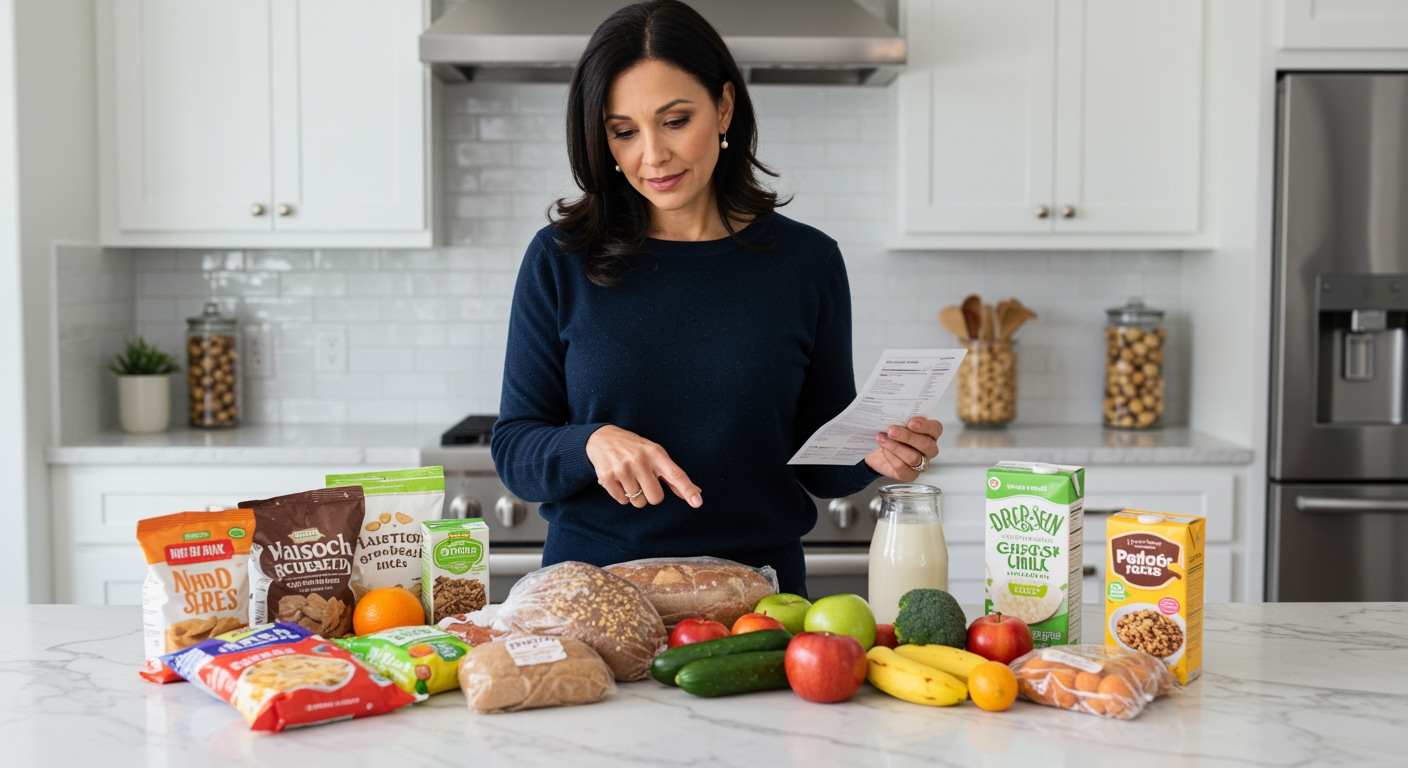✪ Key Highlight: New research suggests nutrients, not processing levels, drive most health risks from ultra-processed foods.
Introduction
Ultra-processed foods have become the nutrition world’s biggest villain.
Headlines everywhere blame these foods for rising obesity, diabetes, and heart disease rates across the globe.
Hi, I’m Abdur, your nutrition coach and today I’m going to analyze groundbreaking research from Deakin University that challenges everything we thought we knew about ultra-processed foods and their impact on human health.
What Makes Foods Ultra-Processed?
The NOVA classification system divides all foods into four distinct processing categories.
Ultra-processed foods represent the most heavily altered category, containing multiple additives, flavors, and artificial colors that transform raw ingredients beyond recognition.
These products include packaged snacks, sugary drinks, instant noodles, and even some types of bread and breakfast cereals.
Research shows ultra-processed foods now make up more than half of all calories consumed in developed countries like the United States, United Kingdom, and Australia.
The concern stems from their typical nutritional profile: high in added sugar, unhealthy fats, and salt, but low in fiber, vitamins, and essential minerals.
This combination creates foods that are easy to overeat because they lack the natural satiety signals that whole foods provide to your brain.
✪ Fact: Ultra-processed foods are designed to override your natural fullness signals, making overconsumption almost inevitable.
What Does Current Research Actually Show?
Multiple large-scale studies have linked high ultra-processed food consumption to serious health problems.
A 2019 study published in The BMJ tracked nearly 20,000 people in Spain for a decade and found shocking results.
Those who ate the most ultra-processed foods were 62 percent more likely to die during the study period compared to those who ate the least.
Another study followed 10,000 Australian women for 15 years and discovered that high consumers had a 39 percent higher risk of developing high blood pressure.
Large reviews have consistently shown strong connections between ultra-processed foods and heart disease, diabetes, cancer, and even mental health disorders.
These findings have created widespread concern among health professionals and led to calls for stricter regulations on food processing industries.
✪ Note: Over 30 different health conditions have been linked to high ultra-processed food consumption in recent research.
Is Processing The Real Problem?
The Deakin University researchers wanted to dig deeper into what actually causes these health problems.
They questioned whether the processing itself creates harm, or if the issue lies with the poor nutritional quality of these foods.
Many ultra-processed foods are packed with sugar, salt, and unhealthy fats that we already know damage human health.
Professor Mark Lawrence, one of the study authors, emphasized that we need to focus on overall diet quality rather than just processing levels.
The team analyzed data from the 2011-12 Australian Health Survey to test their hypothesis about what really drives health risks.
They found that people eating more ultra-processed foods had diets higher in added sugars, saturated fats, and sodium, but lower in fiber and essential nutrients.
When researchers adjusted their analysis for these specific nutrients, the link between ultra-processed food intake and poor health outcomes became much weaker.
✪ Pro Tip: Focus on limiting added sugars, salt, and unhealthy fats regardless of how processed your food is.
Are All Ultra-Processed Foods Bad?
The research team made an important distinction that challenges common assumptions about food processing.
Some ultra-processed foods can actually contribute to a healthy diet when chosen wisely.
Wholegrain breads, fortified breakfast cereals, and plant-based milks are all classified as ultra-processed under the NOVA system.
However, these foods can provide important nutrients and help people meet their daily dietary requirements.
Professor Lawrence argued that nutrition guidelines should focus on limiting foods high in sugar, salt, and unhealthy fats, regardless of processing level.
This approach would help people make better choices without getting confused by complex processing classifications.
Dr. Walter Willett from Harvard T.H. Chan School of Public Health supports this view, stating that what matters most is what gets added or removed during processing.
✪ Fact: Many nutritious foods like fortified plant milks and whole grain breads are technically classified as ultra-processed.
What Should Public Health Policy Focus On?
The debate about ultra-processed foods has reached government policy levels worldwide.
Some countries are considering warning labels or taxes on these products to discourage consumption.
Others are updating their dietary guidelines to specifically recommend eating fewer ultra-processed foods.
However, the Deakin team cautioned against focusing too much on processing alone.
They warned that such an approach could create confusion and make it harder for people to make healthy choices.
Instead, they suggested that public health messages should emphasize eating more whole foods like fruits, vegetables, legumes, nuts, and whole grains.
The researchers also emphasized addressing all drivers of poor diet, not just food processing levels, to create meaningful health improvements.
✪ Note: Effective nutrition policy should focus on nutrient quality rather than processing complexity to avoid public confusion.
The Bottom Line
The real villain in our diets is not processing itself, but the poor nutritional quality of many processed foods.
Focus on what goes into your food, not how much it has been processed, because nutrients drive health outcomes more than manufacturing methods.
I would love to hear your thoughts on this research and how it might change your approach to food choices, so please share your questions or experiences in the comments below.
References
At NutritionCrown, we use quality and credible sources to ensure our content is accurate and trustworthy. Below are the sources referenced in creating this article:
- BMJ Group: Consistent evidence links ultra-processed food to over 30 damaging health outcomes
- American Medical Association: What doctors wish patients knew about ultraprocessed foods
- Yale Medicine: Ultraprocessed foods bad for you
- Harvard T.H. Chan School of Public Health: Ultra-processed foods some more than others linked to early death
- Johns Hopkins Bloomberg School of Public Health: Ultraprocessed foods account for more than half of calories consumed at home





